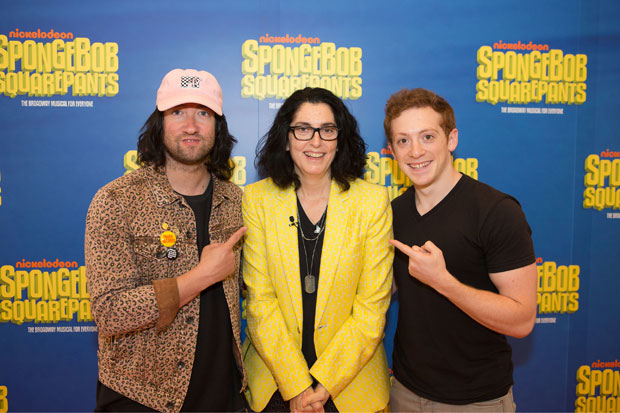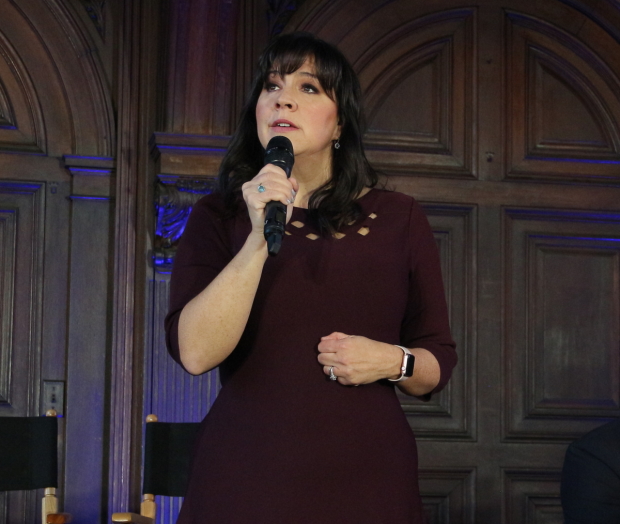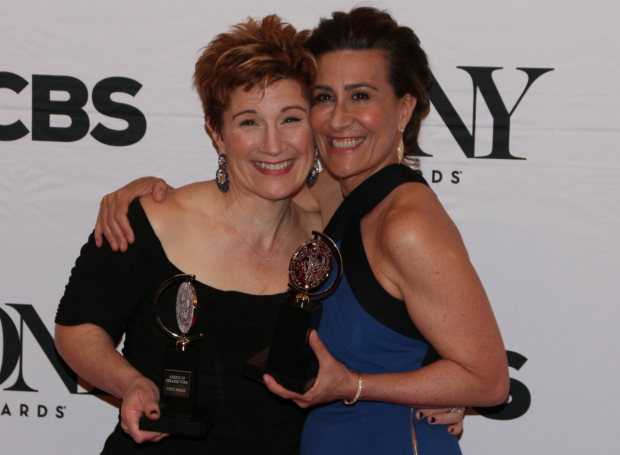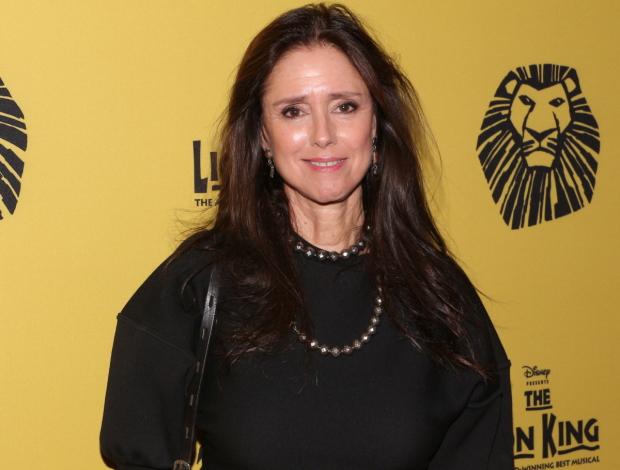5 Ways We Can Make It Women's Day on Broadway Every Day
Of the 332 creative-team positions on Broadway this season, only 57 (or 17 percent) are held by women. That alarming statistic is just one of many reasons that women took over the St. James Theatre (home of Broadway's Frozen) on March 12 for the inaugural Women's Day on Broadway. Four panels, hosted by Gayle King, Whoopi Goldberg, Juju Chang, and Meredith Vieira, put some of Broadway's greatest actors, designers, directors, producers, writers, and business minds onstage to hear their solutions for the theater's perpetual parity problem. Here are five takeaways that everyone can get moving on now, whether you live your life onstage, offstage, or backstage.
1. Diversify the Critics

(© Jeremy Daniel)
Equal representation among casts and creative teams was the primary conversation of the day, but there was broad consensus that one of the biggest challenges to that effort is diversity among critics — or lack thereof. During the day's first panel, Kristen Anderson-Lopez (Frozen composer), Nell Benjamin (Mean Girls lyricist), Tina Fey (Mean Girls book writer), Sonia Friedman (Harry Potter and the Cursed Child producer), and Tina Landau (SpongeBob SquarePants director) all recognized the field of theatrical criticism as overwhelmingly white and male. Landau couldn't think of a single production in her career that was reviewed by a person of color, while Benjamin affectionately remembered many a negative review that read as follows: "Everyone else around me seemed to be enjoying it — and I don't know why." Benjamin's response: "I don't know either, sir."
2. Child Care, Child Care, Child Care

(© David Gordon)
There are no quick fixes to Broadway's representation problem, but one of the quickest might be child care. As Anderson-Lopez (a mother of two girls) noted, the Broadway machine was built around a patriarchal society, and as that society changes, so do the needs of the people working in it. Fortunately, she said, we work in a community of creative people, so a solution shouldn't be far away. Sonia Friedman mentioned the possibility of job share (an idea being tossed around the West End). Marsha Norman (in a later panel) urged theater companies to offer more child-care resources, while speakers during the final panel regretfully discussed how women feel the need to hide their pregnancies and the demands of parenthood from their employers. To that destructive custom, Nancy Coyne (founder of the theatrical advertising agency Serino Coyne), said, "I don't know anyone who works harder than a woman who just had a baby."
3. "Beware the People Who Want to Keep You Their Assistant"

(© David Gordon)
These words of wisdom came from Jeanine Tesori (Fun Home, Caroline, or Change), who escaped the vortex of perpetual assistant-hood to become a Tony-winning composer. Developing an artist, she argued, takes an investment of time and money — two things we need to start giving women in greater quantities and not keeping them chained to the sidelines.
4. Change the Chemistry of a Room

(© David Gordon)
Broadway may still be a man's world, but it doesn't even compare with the land of TV comedy, where Tina Fey cut her teeth. What she learned in the Saturday Night Live writers' room (and now brings to Broadway) is that power quite often is in numbers. Having female voices to not only write jokes, but to laugh and respond to them behind the scenes, Fey said, can be the difference between a skit making it to the air and not. For Kristen Anderson-Lopez, it was the difference between writing a catfight or the nuanced story of sisterhood that made audiences fall in love with Frozen. According to Anderson-Lopez, the story writers at Disney were honing the conflict between Elsa and Anna and kept returning to the idea of having the women fall in love with, and subsequently fight over, Hans. Anderson-Lopez was the lone one to raise her hand and take issue with the story line — that is, until writer Jennifer Lee came on board. According to Anderson-Lopez, the two of them together were able to explain to the writing team that "When it comes to sisters, it happened long before that guy showed up."
5. Shift Perspectives

(© David Gordon)
Leg in a cast, Julie Taymor tossed a pair of crutches aside to deliver the day's closing remarks on the topic of "perspective." Common practice in the theater, said the Tony-winning director, is to give audiences what they like. That, however, is not the job. "Our job," she said, "is to take people places they didn't know they wanted to go." That may mean that men finally get to identify with the stories of women, or white Americans get to revel in a multiracial hip-hop interpretation of our nation's founding fathers. According to Tony-winning actor Renée Elise Goldsberry, the impact of Hamilton has been so strong that Google produces a photo of her on Angelica Schuyler's birthday. If the internet can open its mind, so can Broadway.










